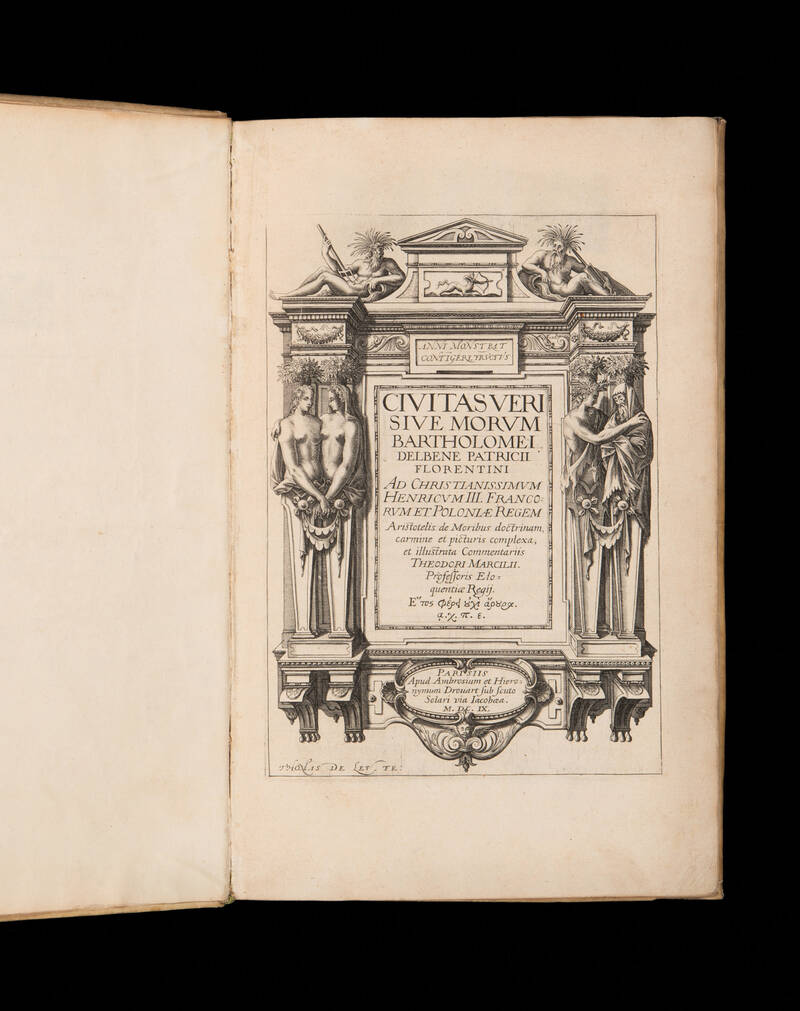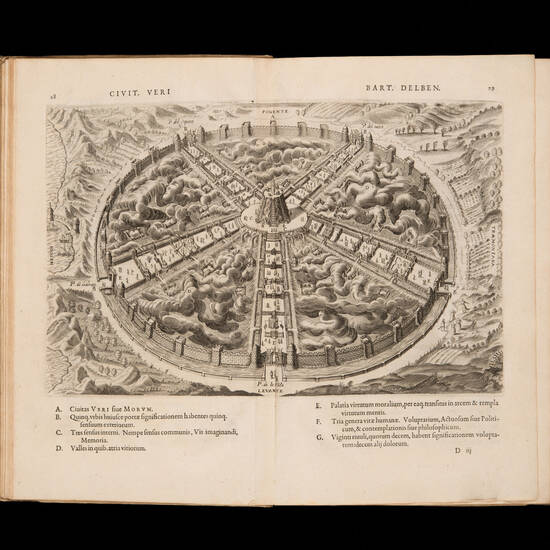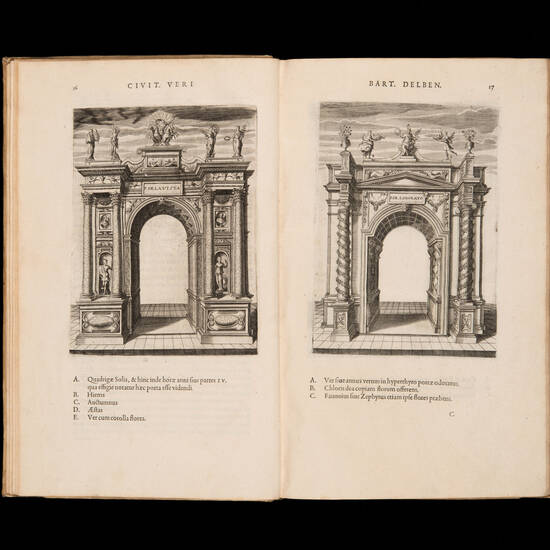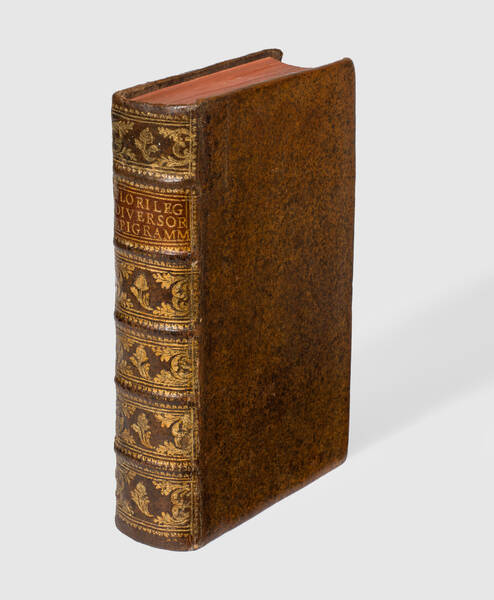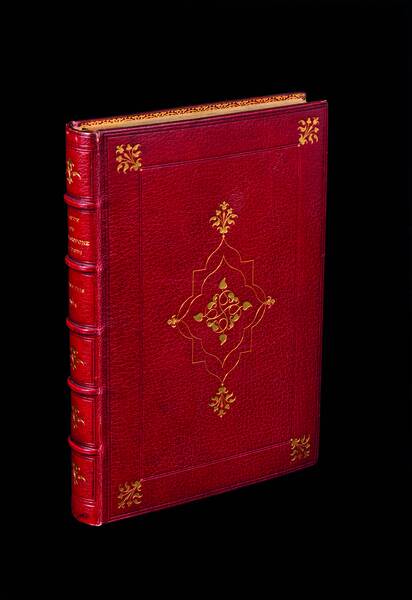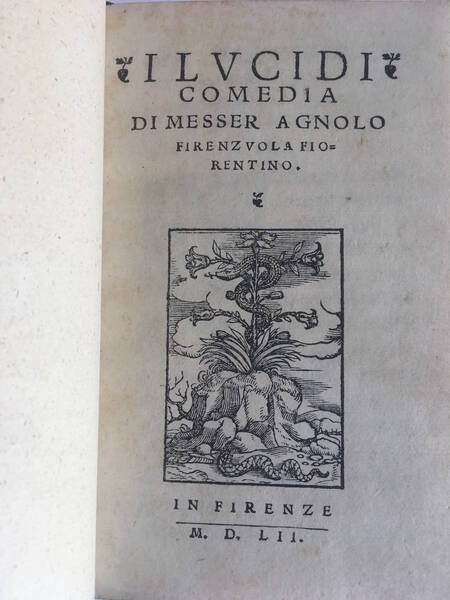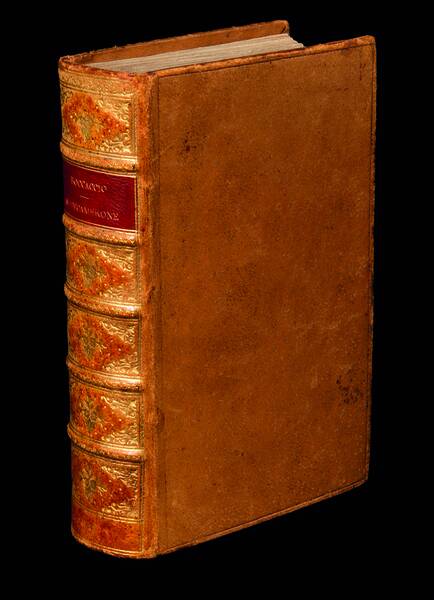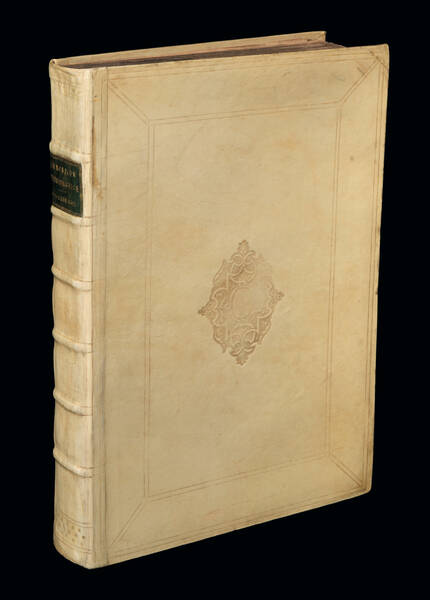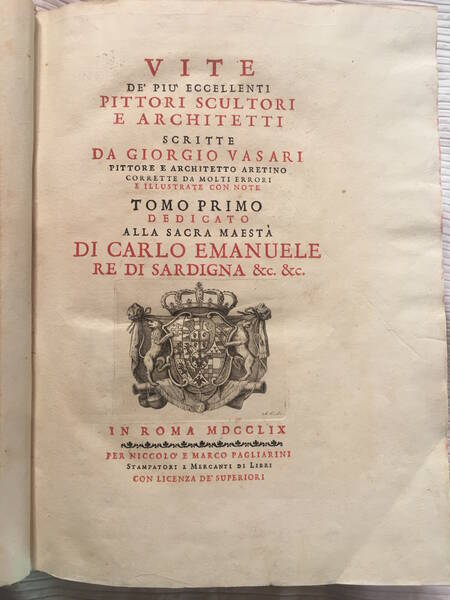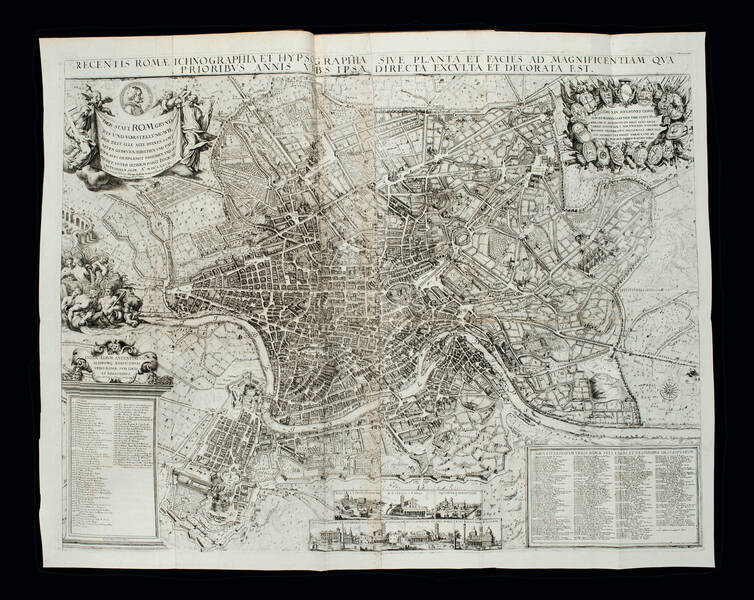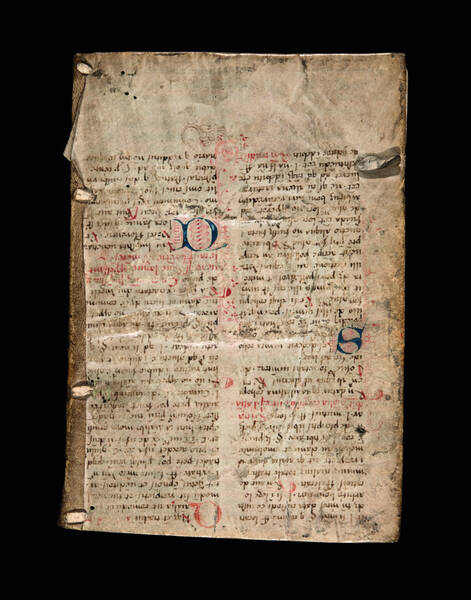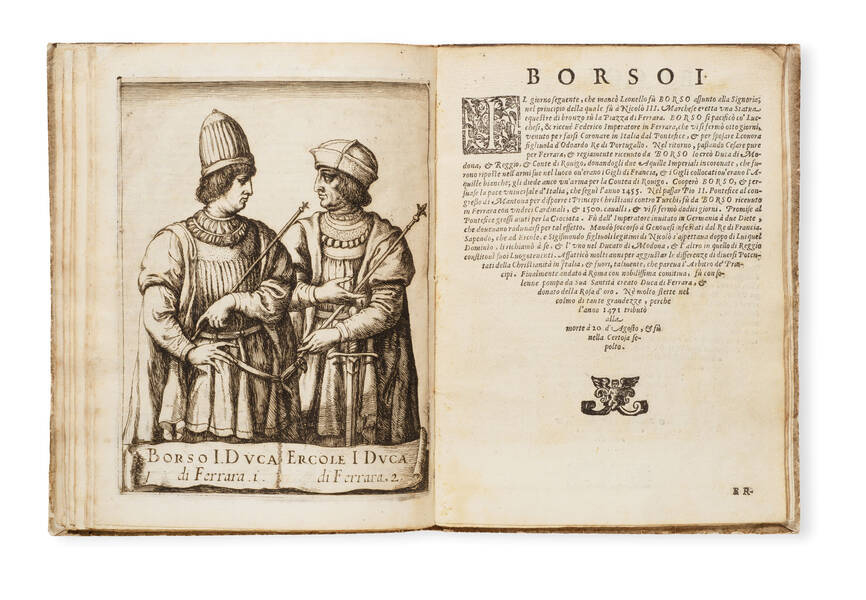DEL BENE, Bartolommeo. Civitas veri sive morum ... illustrata commentariis Theodori Marcilii.
PARIS, Ambroise and Jérôme Drouart., 1609.First edition of this superbly illustrated work of utopian poetry, written in Latin hexameters by Bartolommeo Del Bene. The text is accompanied by commentary of the French humanist Théodore Marcile (1548-1617), as well as 33 intricate copper-plate engravings by Thomas de Leu (1560–1620). Written in 1585, the work was only published posthumously in 1609 by the author's son, Alfonso, bishop of Albi, who dedicated it to Henri IV. Civitas veri or “The City of Truth” recounts an allegorical and moral voyage, in the same vein as Aristotle's Nicomachean Ethics and Thomas More's Utopia.
Born in Florence in 1514, Del Bene came from an eminent Italian banking family, boasting a deeply republican political tradition and strong anti-Medici sentiment. Following the Republic's surrender in the Siege of Florence to Charles V, the family lost power and retreated to their Val d'Elsa home. In 1533 Bartolommeo left Tuscany for France, where he developed a position at the court of Catherine de' Medici, first as valet to Henry II and later as an escort to Marguerite de Valois. Having consolidated his reputation at the French court, Del Bene was sent in several diplomatic missions to Florence and Italy, at the request of Catherine de' Medici. Alongside his diplomatic and courtly commitments, he was a deeply literary man, having mastered Latin and Greek, as well as a member of the Académie du Palais of Henry III.
Del Bene's magnum opus is narrated as an allegorical progress lasting thirty days, throughout which the reader, as Maguerite de Valois accompanied by Aristotle, is taken in pilgrimage to the ideal state, reflective of the characteristics of a perfect society – the pinnacle of Renaissance humanist aspirations. Set under the guise of solidly erected classical architecture, each building is as stable as the words of the poet, as the city is nothing more than an imagined dream. As the reader enters the gates of the metropolis, they are reminded that the portals are simply words, and virtues live inside the city, while vices hide away deep in the fog and darkness of the valleys between them. Five portals give way to the city of truth, each representing one of the five senses following Aristotelic tradition. Apollo presides over the portal of hearing, Mars and Venus that of touch, Ceres and Baccus over taste, Zephyrus over the portal of smell, and Helis over the sense of sight. Inside the city walls, each leads through to passageways of virtue, avoiding the valleys of vice, and leading to five temples standing in honour of science, art, prudence, intelligence and wisdom.
At the deepest heart of the capital lies a five-sided pyramid, and a flame rising above all, standing in for the burning magnificence of the mind and truth, derived from the Augustinian tradition. “The commentator Marcile points out its indebtedness to St. Augustine's “City of God”, and indeed the plan of the City of Truth recalls illustrations in medieval manuscripts of the City of God. The allegorical dream in the architectural setting has a strong hold on the Renaissance imagination, as exemplified by the 'Hypnerotomachia Poliphili', to which work the 'Civitas veri', though of a different temper, has a certain relationship.” (Yates, p. 112).
Del Bene's Civitas veri perfectly encapsulates the humanist eagerness to reach an ideal state, one that is centred around truth and virtue, through the utopian literary genre popular in the 16th century. It is a work clearly influenced not only by the philosophical works of the past, but also by the Renaissance frenzy of constructing the ideal city, such as the town of Pienza, constructed in the mid-fifteenth century by Pope Pius II, not far from Del Bene's childhood home in Val d'Elsa.
USTC 6016760; Praz, p. 314; Adams, A Bibliography of French Emblem Books F.212 p.410; Landwehr, 255; F. A. Yates, The French Academies of the Sixteen Century; G. Negri, History of Florentine writers; Julia Stimac, “'The City of Truth': A Closer Look at Bartolomeo Del Bene's Civitas veri sive morum,” 15 July 2020; Updike I, 206: ‘An early seventeenth century folio which possesses considerable style, composed in type something like characters used by Plantin is the 'Civitas Veri sive Morum' of Delbene. This is printed in a large and very effective roman character ... In form of type, in type-setting, and in imposition, the book has dictinction'.
Other Books
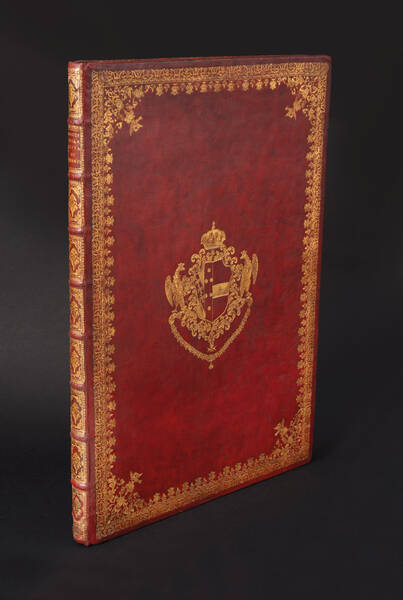
ZOCCHI, Giuseppe
Scelta di XXIV vedute delle principali contrade, piazze, chiese, e palazzi della citta di Firenze.
€ 45.000![Azhār al-afkār fī ğawāhir al-ahğār by Ahmad ibn Yūsuf al-Tīfāšī […]Fior di pensieri sulle pietre preziose di Ahmed Teifascite, opera stampata nel suooriginale arabo, colla traduzione italiana appresso, e diverse note di AntonioRaineri Azhār al-afkār fī ğawāhir al-ahğār by Ahmad ibn Yūsuf al-Tīfāšī […]Fior di pensieri sulle pietre preziose di Ahmed Teifascite, opera stampata nel suooriginale arabo, colla traduzione italiana appresso, e diverse note di AntonioRaineri](https://www.medariquier.com/typo3temp/pics/4baf8d2ef4.jpg)
AHAMAD IBN YUSUF, al-Tayfãsî
Azhār al-afkār fī ğawāhir al-ahğār by Ahmad ibn Yūsuf al-Tīfāšī […] Fior di pensieri sulle pietre preziose di Ahmed Teifascite, opera stampata nel...
SOLD OUT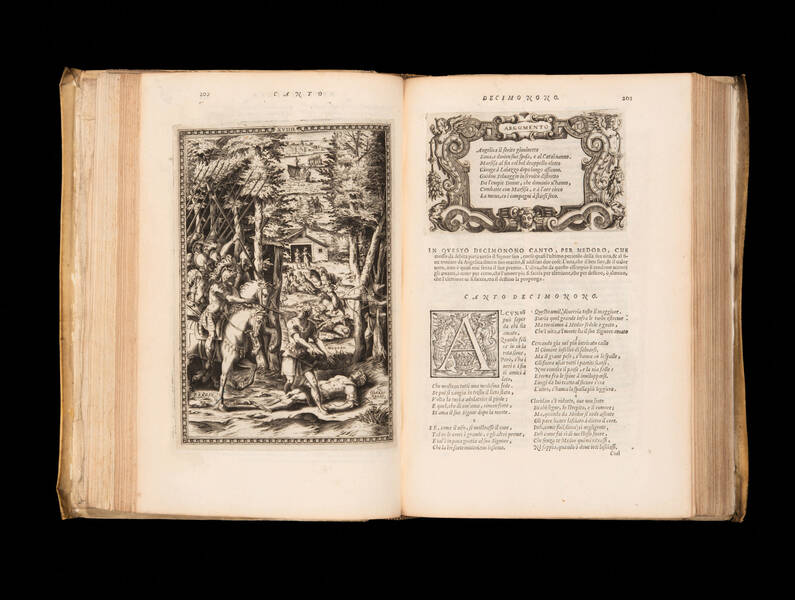
ARIOSTO, Ludovico
Orlando furioso di m. Lodouico Ariosto nuouamente adornato di figure di rame da Girolamo Porro padouano et di altre cose che saranno notate nella...
SOLD OUT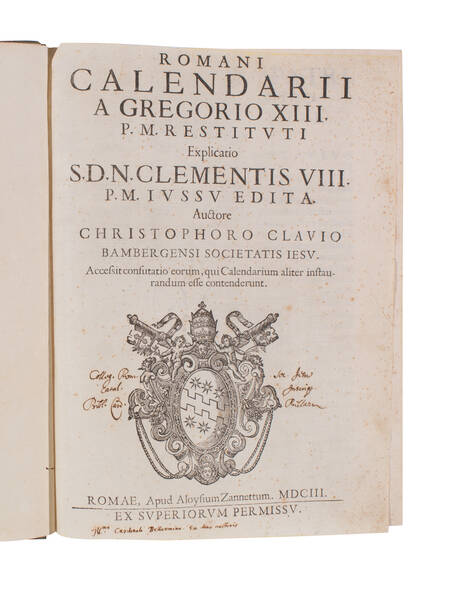
CLAVIUS, Christoph
Romani calendarii a Gregorio XIII. P.M. restituti Explicatio S.D.N. Clementis VIII. P.M. iussu edita.
SOLD OUT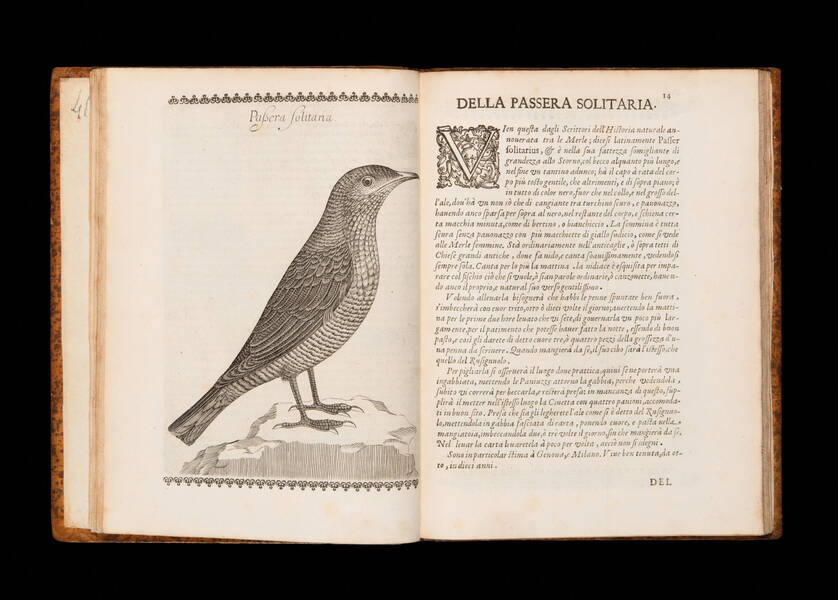
OLINA, Giovanni Pietro
Vccelliera ouero discorso della natura, e proprieta di diuersi vccelli, e in particolare di que' che cantano. Con il modo di prendergli, conoscergli,...
€ 6.000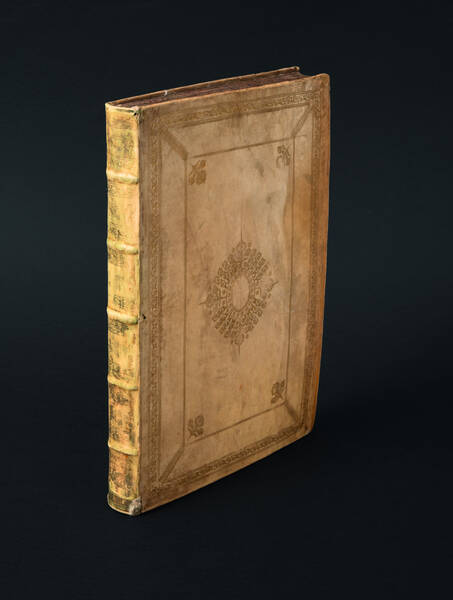
CONTILE, Luca
Ragionamento di Luca Contile sopra la proprietà delle imprese con le particolari de gli Academici Affidati et con le interpretationi et croniche.
€ 8.000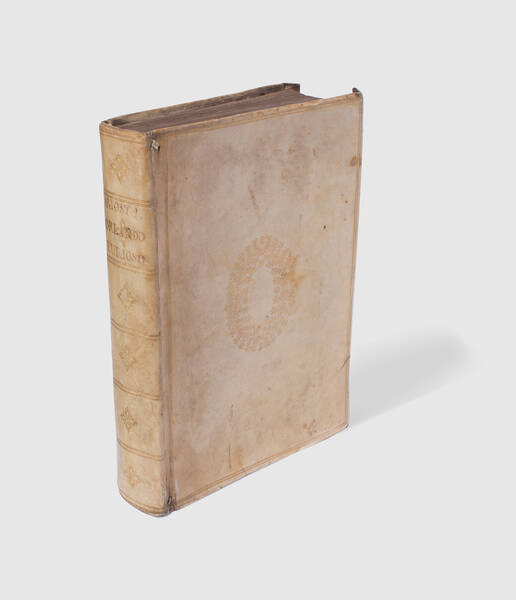
ARIOSTO, Ludovico
Orlando furioso di m. Lodouico Ariosto nuouamente adornato di figure di rame da Girolamo Porro padouano et di altre cose che saranno notate nella...
SOLD OUT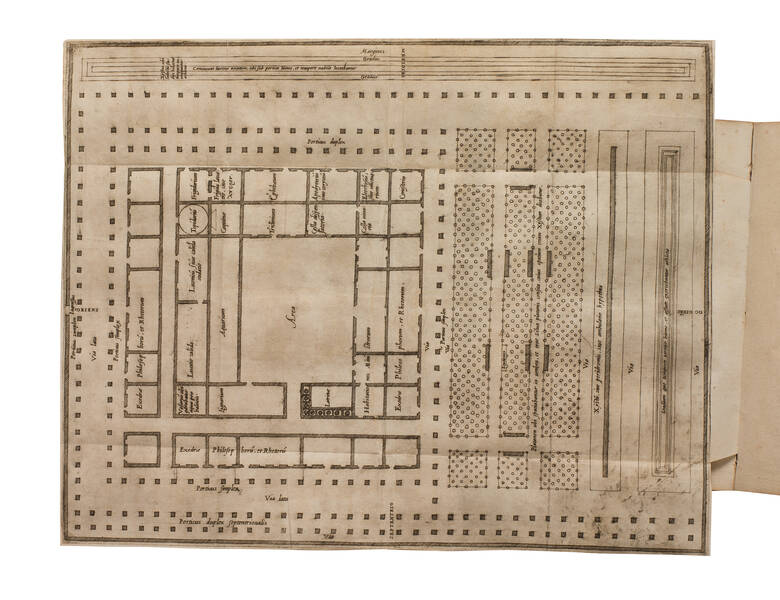
MERCURIALE, Girolamo
Artis gymnasticae apud antiquos celeberrimae, nostris temporibusignoratae, libri sex.
SOLD OUTMEDA RIQUIER rare books ltd.
4 Bury Street St James's
SW1Y 6AB London
Phone +44 (0) 7770457377
info@medariquier.com
